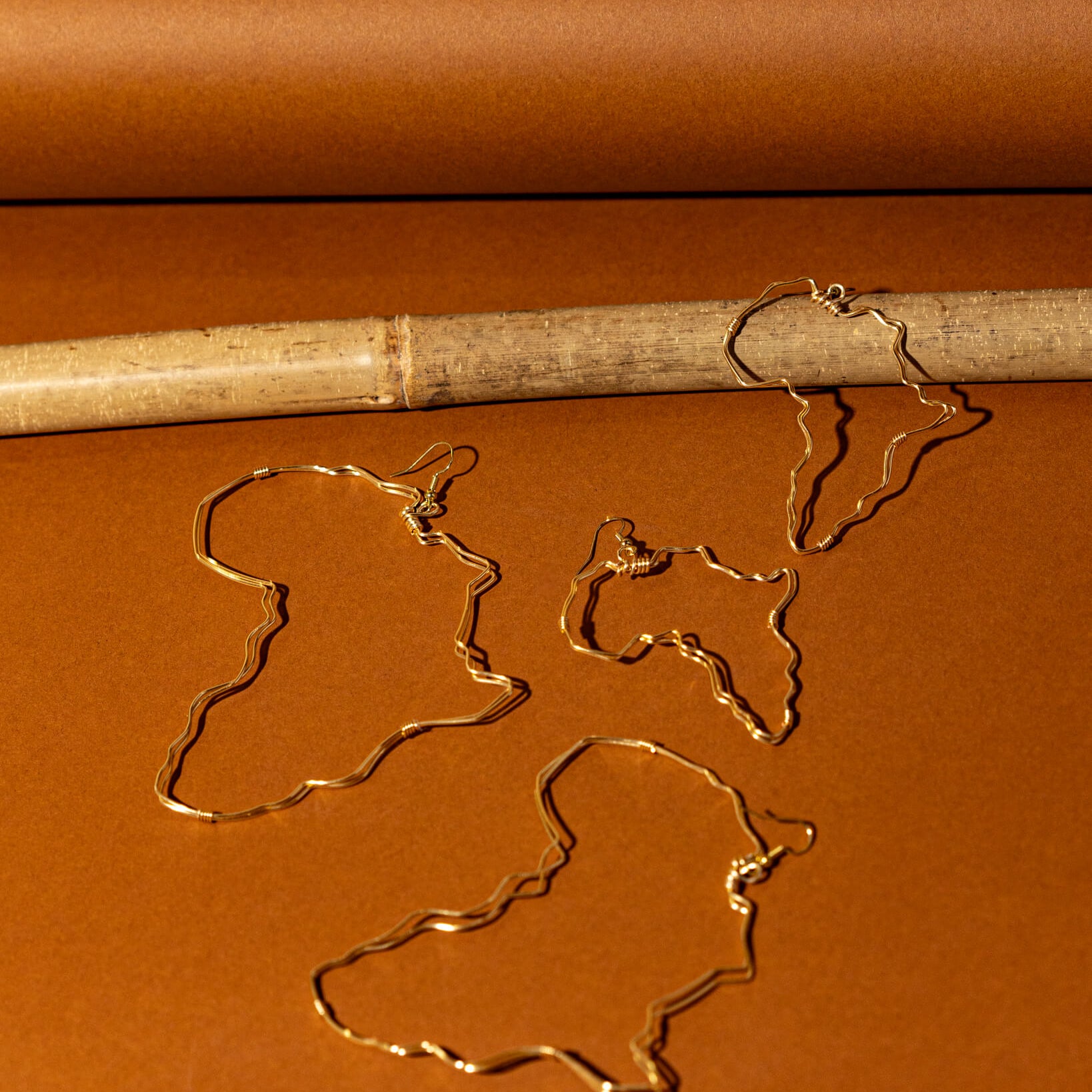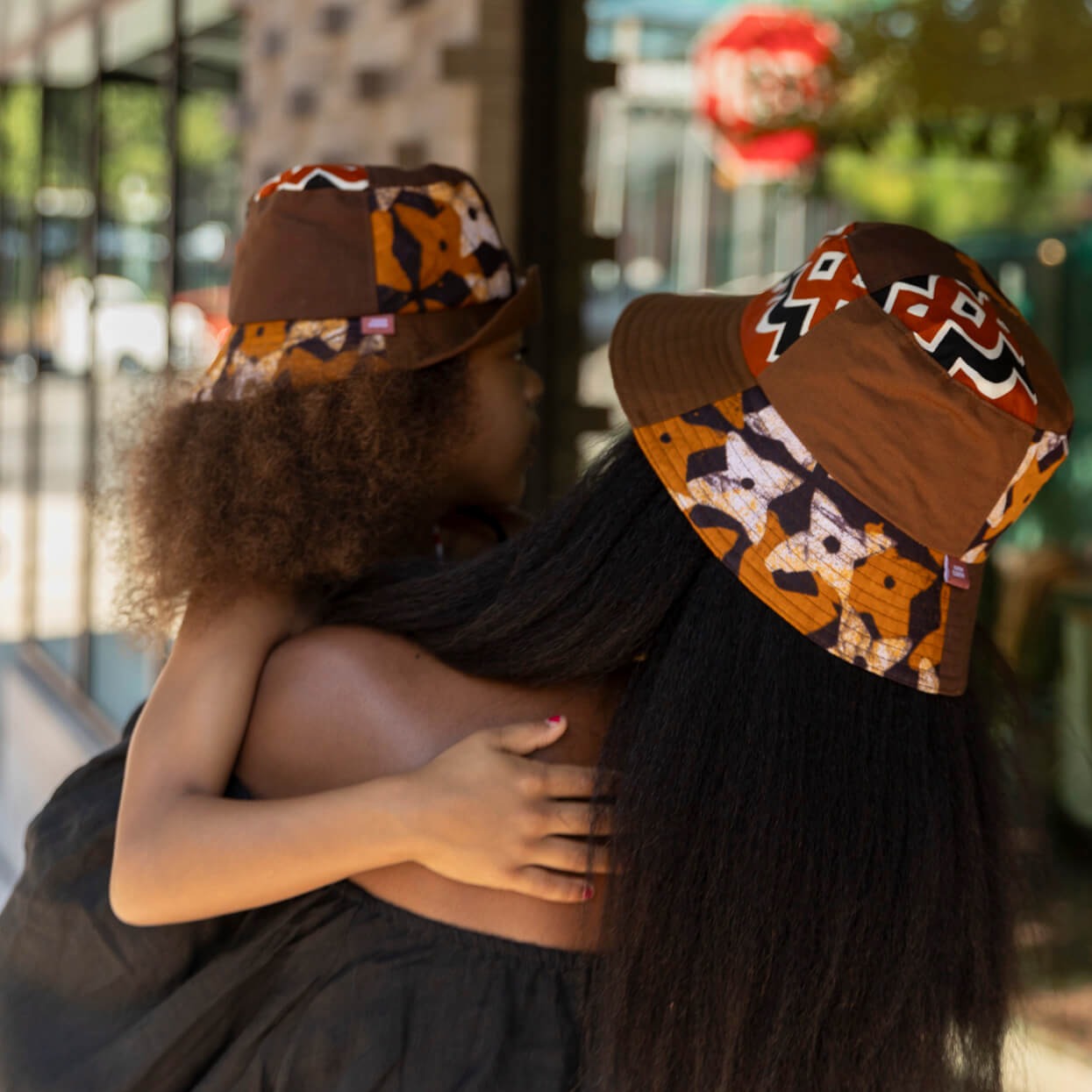When Berlinda walked in our show room just a few minutes before our Wrap It Wednesday event, the whole team gasped. Everyone was excited to be introduced to her because we all heard about her the week before. We knew that she was coming to celebrate her birthday. And we knew that Aeon, one of our team members couldn't wait for us to meet her mom.
Aeon is a brilliant artist who helps us with packaging, customer relations, and keeps us on our toes with her dark humor and scientific facts. It made sense that her mom, Berlinda would be such a delight. Her smile immediately welcomed us to a warm embrace. Her handshake firm but gentle. And her presence, powerful and kind made me immediately want to stand up a little bit straighter. Berlinda just from a glance, is the type of woman I wished I read about as a young girl. The type of woman I would look up to if she flashed before my screen. And so it only made sense that I asked to spend some time with her. To photograph her, and to let her share a bit of her story.
Q: What are some things that you loved and miss about Haiti?
A: I miss the vibrancy of Haiti: the brightness of people's smiles, the colors of people's clothing and personalities, the beautiful flowers and trees, the mountains and beaches on a summer day. I miss the year-round warm weather, which is almost never humid. I also miss the foods and the fruits right from the trees, especially so many varieties of juicy mangoes in June on a hot afternoon after school. But most of all, I miss the beautiful People of Haiti and their resilience to keep going no matter what.

Q: How did your relationship with Haitian culture change while living away from it?
A: My first stop to the US was in Astoria, NY, which was then a mostly Greek community. My siblings and I attended high school with very few Haitian students, who were themselves escaping the chaos that ravaged Haiti in 1986 and still today. As a result, we were not exposed to our Haitian culture much, except for the cooking, which quickly became a delicacy and no longer the norm we took for granted when we were in Haiti. I quickly adapted to only speaking English and American culture to fit in with our peers.

Q: How do you hold on to and celebrate your Haitian heritage now?
A: My family continues to hold on to our culture mainly by having lots of gatherings with relatives and exposing our children to Haitian foods, music, and the beautiful history of the Island.

Q: How old were you when you moved to the US?
A: I was 14.
Q: What was that experience like for you? What were the good things and the challenges?
A: It was difficult at first because everything was different. We did not speak any English, so we spent a couple of years focusing on learning and taking it all in. I did not understand a lot of things, i.e. racism, people ridiculing us for the ways we spoke and dressed, how some American kids are rude to adults, free education and yet some kids do not apply themselves, etc.
My parents had instilled in us some core Haitian values (i.e., respect your elders, work hard in school, etc.), which will always remain our foundation and we built from that.
As a curious teenager in NY, I had more freedom to explore and opportunities to meet people from all over the world. The "junk" foods were the best since we did not have that in Haiti. As a growing kid, this was heaven due to the availability of so many foods and sweets from all over the world. I remember spending my weekly allowance just on ice cream, which we rarely had in Haiti.

Q: How did those things affect how you perceived and interacted with the world around you?
A: I'm proud to tell people that I'm Haitian but, as per my Mother, I'm an American and act as such. I knew she was right when I realized I dream in English and not Haitian Creole. I still have an accent when I speak English and people are quick to treat me disrespectfully for some reasons. My mother thinks I speak my mind too much and [am] too forward. I did shave all my hair off and live with my children's father before marriage...lol. I think I have adapted here well by mixing the core values from my childhood with American ones. Due to the opportunities available here, I was able to build on these values and finish my education despite racism and poverty. I started babysitting 4 children to help my parents pay the bills within a few months of landing in the US. I understand the need to be educated, especially being a black woman. Despite being well educated I still get misjudged by people here. I was often the only black lawyer in court in a sea of white men, but, as taught by my Mother, I keep my heels high and my head higher.

Q: What influenced you to become a lawyer?
A: My first job out of college was as a foster care caseworker in Harlem and later in Yonkers. I fell in love with helping stabilize children who were torn away from their biological parents for whatever reasons. Most of these children were black and resembled me and the people I most loved. It became unbearable to properly advocate for these children and I could not understand why a country such as the US has so much disparity. These children were being ripped from their biological parents instead of putting resources in the communities to stabilize and strengthen families. I remember going to court to testify in the family court and advocate for a child in foster care and it dawned on me that I needed to get a law degree to better understand the system and be an effective advocate. I quit my job and headed for law school.
Q: How did your experiences shape your journey through college and law school?
A: At first, I wanted to travel all over the world and get a degree that would allow me to do so, but I quickly realized that I'm a humanist and enjoy helping others. Growing up in Haiti, my parents were always helping someone from poverty. I naturally gravitate to do the same. It's in my blood!
Q: How has your life from childhood to now shaped your approach to motherhood?
A: On the day I gave birth to my first child, I realized my Mother is my greatest heroine. I did not understand all she sacrificed for her 6 children until that day. I remember apologizing to her for all the headaches I caused her as a child. I was a little imp growing up...lol. So, I always approach motherhood from that perspective. The unconditional love I feel for my daughters is my greatest and most wonderful feeling and will remain for the rest of my life.

Q: What are the key traits you’ve worked to teach your daughters? As you’ve seen them grow, are you seeing these traits in them?
A:
- Respect for self and others...be kind to self and all
- Confidence...be a respectable bad ass.
- Accountability...being aware and accept the consequences of your actions.
- Responsible...go all in and get it done
- Do not harbor regrets - learn from it and move on
- Give a helping hand every chance you get
My daughters are AMAZING! I have seen all these traits in them, some more than others. They have and are building from that foundation. I'm a very proud Mama!
Q: As a strong woman, a Fanm Djanm, what would you tell to women of all ages who don’t feel strong, or who haven’t found their strength yet?
A: Your thoughts can be your best friends but also your worst enemies. Strive to practice kindness all the time. Take a yoga class, meditate, eat well, and be one with the universe for a few minutes every day for clarity. Be a work in progress. I am one!
Written questions by our team member Shama Parekh























Leave a comment